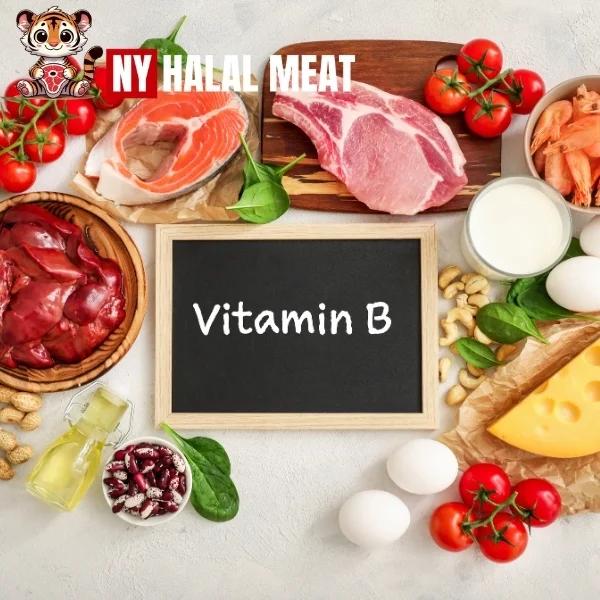Benefits of Vitamin B12 in Meat: A Vital Nutrient for Health

: A Vital Nutrient for Health
Meat remains one of the best sources of vitamin B12, a vital nutrient for overall health. Also known as cobalamin, vitamin B12 is essential for nerve function, red blood cell production, and DNA synthesis. This article focuses on the numerous benefits of vitamin B12 in meat and why it plays a crucial role in balancing dietary requirements.
1. Helps in Normal Functioning of the Nervous System
Vitamin B12 is essential for the proper functioning of the nervous system. It aids in the formation of myelin, which protects nerve cells and facilitates efficient signal transmission. A lack of B12 can lead to neurological issues like memory loss and mood changes, and in severe cases, can lead to paralysis. Regular consumption of meat supports optimal nervous system health.
2. Aids in Red Blood Cell Formation and Prevents Anemia
Vitamin B12 is crucial for red blood cell formation. Deficiency in B12 can cause megaloblastic anemia, characterized by large and fewer red blood cells, leading to fatigue and weakness. Meat, especially red meat, is rich in B12, helping to prevent anemia and boost energy levels.
3. Boosts Energy Levels
Vitamin B12 is necessary for converting food into energy, making it a vital nutrient for active individuals. It supports metabolic processes, ensuring the body efficiently uses fats and proteins as energy sources. Including meat in your diet provides a steady supply of B12, preventing fatigue and enhancing fitness levels.
4. Supports Bone Growth and Development
Studies suggest that adequate levels of vitamin B12 promote bone health and may lower the risk of osteoporosis, especially in older adults. Meat-based sources of B12 are quickly absorbed, contributing to sustained bone strength over time.
5. Improves Mood and Mental Health
Vitamin B12 plays a role in serotonin production, a neurotransmitter responsible for mood regulation. Low B12 levels are often linked with anxiety and stress. Consuming meat can help maintain sufficient B12 levels, supporting emotional and mental stability.
6. Supports Cardiovascular Health
Vitamin B12 plays a crucial role in maintaining heart health by regulating homocysteine levels, an amino acid that, when elevated, has been linked to an increased risk of cardiovascular diseases, including heart attacks and strokes. High homocysteine levels can lead to the hardening and narrowing of arteries, increasing the likelihood of blood clots and other heart-related complications.
Meat, particularly red meat, poultry, and fish, is a rich source of B12, making it an essential dietary component for individuals looking to support their cardiovascular system. This vitamin aids in the proper functioning of red blood cells and helps in the formation of DNA, ensuring that the circulatory system operates efficiently.
Additionally, B12 contributes to reducing oxidative stress and inflammation, two factors that can further impact heart health. By consuming meat as part of a balanced diet, individuals can naturally obtain adequate amounts of B12, lowering the risks associated with cardiovascular diseases and promoting overall heart function.
Why Meat is a Superior Source of Vitamin B12
While some plant-based foods are fortified with B12, animal products like meat naturally contain high levels of the vitamin in a form that is easily absorbed by the body. This makes meat an ideal choice for those looking to maximize their B12 intake efficiently.
Conclusion
Including quality meat in your diet is an effective way to meet your vitamin B12 needs, which supports energy production, nervous system function, and more. Make meat a part of your balanced diet to enjoy the full range of health benefits B12 has to offer.




[…] for Storing and Preparing Nutritious Meat […]